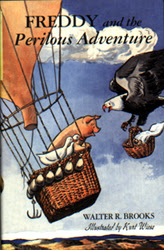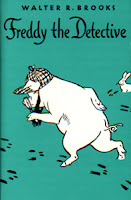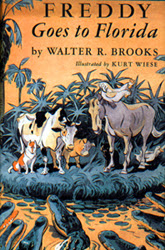EXPECTANTLYNext to the lamp, an
Open book and a steaming cup of
Tea.
In the chair, she sits with
Closed eyes, listening
Expectantly.
©Mary Lee Hahn, 2015
My One Little Word for 2015 is NOTICE. In this poem, I prepare myself for whatever 2015 will bring!
Tricia has the first Poetry Friday roundup of the year at
The Miss Rumphius Effect.

iTunes users can subscribe to this podcast 
There was a period in my life when I was a consultant. There was an old joke about how if you ask a consultant the time he’ll borrow your watch so he can tell you.
That stings a bit. But the fact is that a consultant who doesn’t listen to their client in order to find out how his (or her) consultantly experience can best be applied isn’t much of a consultant.
To give a good answer about what time it is you need to understand what time the client thinks it is. This means listening to the client. Then when you figure out what to tell the client it’s kind of nice if they listen to you. But as long as they pay you they can listen to you or not, that’s their business.
 Etymologically it wasn’t always this way. As we go back into the history of the word client we find that long ago your client had to listen to you. Listening was what made them clients.
Etymologically it wasn’t always this way. As we go back into the history of the word client we find that long ago your client had to listen to you. Listening was what made them clients.
As a consultant the word client is synonymous with the word customer. The sense of client as the person hiring a professional to help them out appeared around the time of Shakespeare 400 years ago. This meaning evolved because for almost 200 years before that the professionals being hired were invariably lawyers.
Although we can fire lawyers the fact someone has a lawyer usually means that they are actually in need of that lawyer and as such are pretty likely to listen to their advice.
It’s no surprise that a lawyerly word like client comes from Latin and the sense it had before the lawyers got hold of it was a kind of master/servant relationship with the client being the subordinate, which I’m sure suited the lawyers just fine.
Latin words of course usually originated back in Roman antiquity and in that context a client was a plebeian under the patronage of a patrician. The patrician protected the client but the client was pretty much a slave who had to come at the beck and call of their patrician. This was so literally true that the etymological meaning of client is “one who listens to be called” since cluere meant “to listen.”
Five days a week Charles Hodgson produces
Podictionary – the podcast for word lovers, Thursday episodes here at OUPblog. He’s also the author of several books including his latest
History of Wine Words – An Intoxicating Dictionary of Etymology from the Vineyard, Glass, and Bottle.


iTunes users can subscribe to this podcast 
When I married my wife I made her an honest woman.
Does that mean she was dishonest before?
Usually these days people think of an honest person as one who doesn’t lie or cheat on their expense claims but when the word honest came into the language 700 years ago it had a slightly different meaning.
 Someone who was honest was someone who held an honorable position.
Someone who was honest was someone who held an honorable position.
This is the meaning honest brought with it from French where it had appeared a thousand years ago from Latin.
Suddenly the phrase “make an honest woman of her” makes sense, she is entering the honorable state of marriage.
The “honorable” meaning has now gone out of the word honest but in Shakespeare’s time both meanings were in use, and although he doesn’t use the phrase with respect to marriage, he does use the term “honest woman” several times and with both the “honorable” and “not-dishonest” meanings.
It was thirteen years after Shakespeare’s death in 1616 that the “to make an honest woman of” phrase first appeared in literature.
Another more recent phrase is “honest injun”—as schoolboys might say when swearing that they aren’t exaggerating about something.
This usage dates first from Mark Twain’s Tom Sawyer in 1876. Sources differ in their speculation on where this phrase came from.
Certainly injun means a “North American Indian” but while the Oxford English Dictionary thinks the phrase refers to secure promises made by Indians, Brewer’s Dictionary of Phrase and Fable says early settlers referred to themselves as honest injuns in contrast to the dishonesty they felt the Indians displayed.
Finally, Hugh Rawson in his book Wicked Words feels the phrase used to be used derisively, meaning someone who was an honest injun wasn’t honest at all.
Five days a week Charles Hodgson produces
Podictionary – the podcast for word lovers, Thursday episodes here at OUPblog. He’s also the author of
Carnal Knowledge – A Navel Gazer’s Dictionary of Anatomy, Etymology, and Trivia as well as the audio book
Global Wording – The Fascinating Story of the Evolution of English.
 Eve Heidtmann of Portland, Oregon is the lucky winner of our FREDDY THE PIG giveaway, sponsored by Overlook in honor of Children's Book Week. We have a dazzling collection of Freddy books, including Freddy and the Perilous Adventure, in the mail to Eve, who plans to share the joys of Freddy with her great-nieces, who are in first and third grade. Congratulations, Eve, and thanks to all those who entered the contest; we had a terrific response from Freddy fans all over the country.
Eve Heidtmann of Portland, Oregon is the lucky winner of our FREDDY THE PIG giveaway, sponsored by Overlook in honor of Children's Book Week. We have a dazzling collection of Freddy books, including Freddy and the Perilous Adventure, in the mail to Eve, who plans to share the joys of Freddy with her great-nieces, who are in first and third grade. Congratulations, Eve, and thanks to all those who entered the contest; we had a terrific response from Freddy fans all over the country.
 In honor of Children's Book Week, The Overlook Press will give away a starter collection of Freddy books to one lucky, Freddy-lovin' winner. Enter to win by email, sending your name, mailing address, and the title of your favorite Freddy book to [email protected] using "Freddy the Pig" in the subject line. The winner will be selected on Monday, November 19. To learn more about Freddy the Pig, visit Friends of Freddy.
In honor of Children's Book Week, The Overlook Press will give away a starter collection of Freddy books to one lucky, Freddy-lovin' winner. Enter to win by email, sending your name, mailing address, and the title of your favorite Freddy book to [email protected] using "Freddy the Pig" in the subject line. The winner will be selected on Monday, November 19. To learn more about Freddy the Pig, visit Friends of Freddy.
 The Overlook Press is the proud publisher of one of the true landmarks in children's literature: Freddy the Pig. Freddy and his fellow animals were the subject of 26 books by Walter R. Brooks, a New York advertising man and a staff writer for the New Yorker, that appeared between 1927 and Brooks's death in 1958. The Freddy books were illustrated by Kurt Wiese, who deftly brought to life hundreds of hilarious events throughout the books. The 26 volumes in this remarkable series contain more than 250 humorous characters. Today, Freddy is championed by his own fan club, Friends of Freddy, who produce the Bean Home Newsletter.
The Overlook Press is the proud publisher of one of the true landmarks in children's literature: Freddy the Pig. Freddy and his fellow animals were the subject of 26 books by Walter R. Brooks, a New York advertising man and a staff writer for the New Yorker, that appeared between 1927 and Brooks's death in 1958. The Freddy books were illustrated by Kurt Wiese, who deftly brought to life hundreds of hilarious events throughout the books. The 26 volumes in this remarkable series contain more than 250 humorous characters. Today, Freddy is championed by his own fan club, Friends of Freddy, who produce the Bean Home Newsletter.






 Someone who was honest was someone who held an honorable position.
Someone who was honest was someone who held an honorable position.

 The Overlook Press is the proud publisher of one of the true landmarks in children's literature:
The Overlook Press is the proud publisher of one of the true landmarks in children's literature:
Thank you, Overlook! I'm looking forward to your generous gift as eagerly as Freddy awaited Breckenridge's basket of food! I plan to make myself worthy by talking up Freddy whenever I can.
---Eve Heidtmann